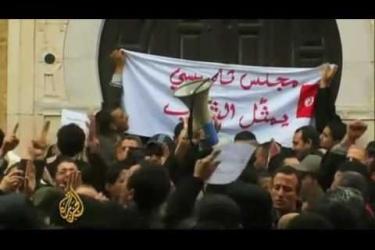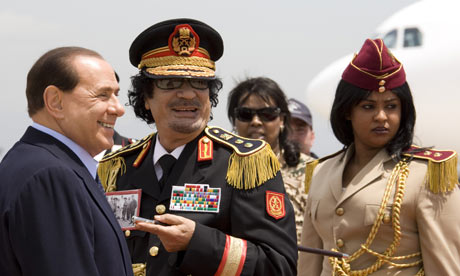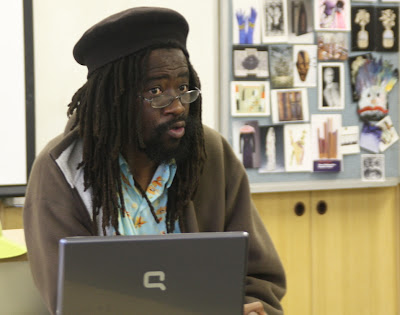`Foro Social Latinamericano', Green Left Weekly's Spanish-language supplement, February 2011 issue
The tide of rebellion and revolution now sweeping Latin America is posing a serious challenge to imperialism’s brutal global rule. For anyone who wants an end to war, exploitation and oppression, Latin America’s struggles to create alternatives are crucially important.
Australia's leading socialist newspaper Green Left Weekly is strongly committed to supporting the growing “people’s power” movement in Latin America. Through our weekly articles on developments in the region, GLW strives to counter the corporate media’s many lies about Latin America’s revolutions, and to give a voice in English to the people’s movements for change.
David Hicks' Guantanamo nightmare

Review by Coral Wynter
Guantanamo: My Journey
By David Hicks
William Heinemann, 2010
February 25, 2011 -- Links International Journal of Socialist Renewal -- Everyone who is curious about David Hicks and his imprisonment at the US concentration camp at Guantanamo Bay in Cuba for six years, should read this book.
It is an honest account of Hicks’ life as a youngster and his torture at the hands of the US army. Contrary to what many of the mainstream reviews of Guantanamo: My Journey assert, Hicks goes into a lot of detail about why and how he first ended up in Pakistan, and then Afghanistan. He explains, in detail, the circumstances of how he became trapped in Afghanistan and his attempts to get back his Australian passport to be able to return home to Adelaide.
Hicks was like so many teenagers looking for adventure. He was also a confused young man, coming from a broken home when he was just nine years old and finding it difficult to find his place in his second family with his stepmother and stepbrothers.
Levantamiento de Egipto: no sólo una cuestión de 'transición'

Tahrir Square. Foto by Hossam el-Hamalawy.
[English version at http://links.org.au/node/2164.]
Por Adam Hanieh, traducido para el CEPRID por María Valdés
Interview with protest organiser: 'Days of rage' spread to Iraq, shake US puppet regime
Protesters chant anti-Iraqi government slogans during a protest at Tahrir Square in Baghdad, Iraq, on February 25, 2011. Thousands of demonstrators converged on central Baghdad as part of an anti-government rally inspired by uprisings across the Middle East and dubbed the "Day of Rage". Photo: Karim Kadim / AP.
By Tony Iltis
Australian socialists: `Stop the massacre in Libya! Power to the people!'

February 22, 2011 -- Solidarity rally in Sydney with the
Libyan people in their struggle for democracy. Photo by Pip Hinman. See an article
about this action here: http://www.greenleft.org.a
Statement by the Socialist Alliance (Australia) in solidarity with the people's uprisings in Libya and the Arab world
February 26, 2011 -- The Socialist Alliance extends its full solidarity to the people of Libya now being brutally repressed for demanding an end to the corrupt and unjust regime of dictator Colonel Muammar Gaddafi.
The Flame, February 2011 -- Green Left Weekly's Arabic-language supplement

February 19, 2011 -- With the help of Socialist Alliance members in the growing Sudanese community in Australia, Green Left Weekly -- Australia's leading socialist newspaper -- publishes a regular Arabic language supplement. The Flame covers news from the Arabic-speaking world as well as news and issues from within Australia. Editor-in-chief is Soubhi Iskander is a comrade who has endured years of imprisonment and torture at the hands of the repressive government in Sudan.

Soundtrack to a revolution: interview with Asian Dub Foundation's Chandrasonic
February 23, 2011 -- British-born South Asian punk-dance band Asian Dub Foundation (ADF) released their latest album A History of Now just as the revolution in Egypt was starting to build. Someone unknown to the band edited news footage of the revolt to the album’s title track and stuck it on YouTube (above).
Libya: How Gaddafi became a Western-backed dictator

Italy' President Silvio Berlusconi and Colonel Muammar Gaddafi.
By Peter Boyle
Updated February 25, 2011 -- Links International Journal of Socialist Renewal/Green Left Weekly -- On February 22, Muammar Gaddafi was boasting on state TV that the Libyan people were with him and that he was the Libyan revolution, even while his dwindling army of special guards and hired mercenaries attempted to drown a popular revolution in blood.
Civilians were strafed and bombed from helicopters and planes. Snipers with high-powered rifles fired into unarmed crowds. Two pilots flew their fighter jets to Malta rather than bomb their own people and another two are reported to have crashed their jets rather than attack civilians. Sections of the armed forces, several diplomats and a couple of ministers have abandoned the regime and, at the time of the writing, the east of Libya was in the hands of popular revolutionary committees.
Malaysian socialists: `Stop brutal massacre in Libya NOW! Power to the people of the Arab world!
Solidarity statement by the Socialist Party of Malaysia with the people's uprising in Libya and the rest of Arab world against authoritarian regimes
February 22, 2011 -- The Socialist Party of Malaysia (PSM) condemns the brutal repression committed by Muammar al-Gaddafi’s regime against its people who revolt against injustices and corruptions.

46 arrested activists charged with treason, tortured
February 25, 2011 -- It has now been confirmed that detained labour movement activist and leading member of the International Socialist Organization Zimbabwe Munyaradzi Gwisai (pictured) and 45 other activists detained by the Zimbabwe state on February 19 have been charged with treason. If found guilty of treason, the activists risk a sentence of death or life imprisonment. They are being tortured to extract bogus confessions. The arrests followed a raid on a closed meeting that was discussing the implications of the revolutions in the Arab world. Gwisai is director of the Labor Law Centre and former Movement for Democratic Change (MDC) MP.
The economic crisis -- What are the main causes?
By Jeyakumar Devaraj, Socialist Party of Malaysia
Tunisia: 14th January Front proposes a National Congress for the Defence of the Revolution

By the 14th January Front*
February 14, 2011 -- The Tunisian revolution is the first of the 21st century. Its shock waves have shaken dictators and Western governments. But it has yet to overturn the ancien regime, and the neocolonial state apparatus that supports it. As an expression of popular unrest it has been fed by the anger of a diverse classes, at least until January 14, 2011. Since that date there has been increasing polarisation between the forces who back the revolution and those of the counterrevolution.
Those on the latter side are attempting to safeguard their constitution and its institutions. With the collaboration with liberal fringes of the democratic movement, Western agents, Islamists and the leftovers of the ancien regime, they are trying to stem the social movement. The provisional government of "national unity" is peopled by former members of Ben Ali’s power structure. This includes a prime minister (from 1999), Mohamed Ghannouchi, who was the architect of neoliberal policies dictated by imperialist financial bodies.